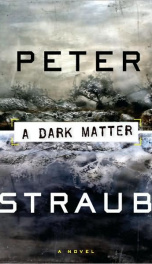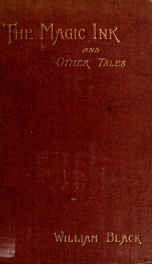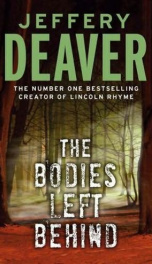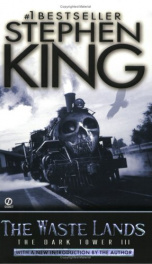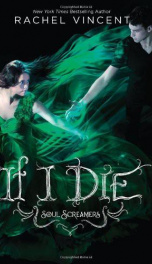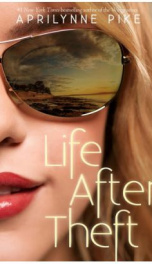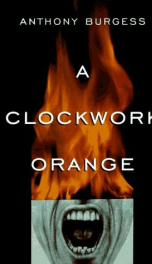Goldman Emma

Emma Goldman (June 27, 1869 – May 14, 1940) was an anarchist known for her political activism, writing and speeches. She played a pivotal role in the development of anarchist political philosophy in North America and Europe in the first half of the twentieth century. Born in Kovno in the Russian Empire (now Kaunas in Lithuania), Goldman emigrated to the US in 1885 and lived in New York City, where she joined the burgeoning anarchist movement.[1] Attracted to anarchism after the Haymarket affair, Goldman became a writer and a renowned lecturer on anarchist philosophy, women's rights, and social issues, attracting crowds of thousands.[1] She and anarchist writer Alexander Berkman, her lover and lifelong friend, planned to assassinate Henry Clay Frick as an act of propaganda of the deed. Though Frick survived the attempt on his life, Berkman was sentenced to twenty-two years in prison. Goldman was imprisoned several times in the years that followed, for "inciting to riot" and illegally distributing information about birth control. In 1906, Goldman founded the anarchist journal Mother Earth. In 1917, Goldman and Berkman were sentenced to two years in jail for conspiring to "induce persons not to register" for the newly instated draft. After their release from prison, they were arrested—along with hundreds of others—and deported to Russia. Initially supportive of that country's Bolshevik revolution, Goldman quickly voiced her opposition to the Soviet use of violence and the repression of independent voices. In 1923, she wrote a book about her experiences, My Disillusionment in Russia. While living in England, Canada, and France, she wrote an autobiography called Living My Life. After the outbreak of the Spanish Civil War, she traveled to Spain to support the anarchist revolution there. She died in Toronto on May 14, 1940. During her life, Goldman was lionized as a free-thinking "rebel woman" by admirers, and derided by critics as an advocate of politically motivated murder and violent revolution.[2] Her writing and lectures spanned a wide variety of issues, including prisons, atheism, freedom of speech, militarism, capitalism, marriage, free love, and homosexuality. Although she distanced herself from first-wave feminism and its efforts toward women's suffrage, she developed new ways of incorporating gender politics into anarchism. After decades of obscurity, Goldman's iconic status was revived in the 1970s, when feminist and anarchist scholars rekindled popular interest in her life. Emma Goldman's Orthodox Jewish family lived in the Lithuanian city of Kaunas (called Kovno at the time, part of the Russian Empire).[3] Goldman's mother Taube Bienowitch had been married before, to a man with whom she had two daughters – Helena in 1860 and Lena in 1862. When her first husband died of tuberculosis, Taube was devastated. Goldman later wrote: "Whatever love she had had died with the young man to whom she had been married at the age of fifteen."[4] Taube's second marriage was arranged by her family and, as Goldman puts it, "mismated from the first."[4] Her second husband, Abraham Goldman, invested Taube's inheritance in a business that quickly failed. The ensuing hardship combined with the emotional distance of husband and wife to make the household a tense place for the children. When Taube became pregnant, Abraham hoped desperately for a son; a daughter, he believed, would serve as one more sign of failure.[5] They eventually had three sons, but their first child together was a girl, Emma.[6] Emma Goldman was born on June 27, 1869. Her father used violence to punish his children, beating them when they disobeyed him. He used a whip only on Emma, the most rebellious of them.[7] Her mother provided scarce comfort, calling only rarely on Abraham to tone down his beatings.[8] Goldman later speculated that her father's furious temper was at least partly a result of sexual frustration.[4] Goldman's relationships with her sisters Lena and Helena were a study in contrasts. Helena, the oldest, provided the comfort they lacked from their mother; she filled Goldman's childhood with "whatever joy it had".[9] Lena, however, was distant and uncharitable.[10] The three sisters were joined by brothers Louis (who died at the age of six), Herman (in 1872), and Moishe (in 1879).[11] When Emma was a young girl, the Goldman family moved to the village of Papilė, where her father ran an inn. While her sisters worked, she became friends with a servant named Petrushka, who excited her "first erotic sensations".[12] Later in Papilė she witnessed a peasant being whipped with a knout in the street. This event traumatized her and contributed to her lifelong distaste for violent authority.[13] At the age of seven, Goldman moved with her family to the Prussian city of Königsberg (then part of the German Empire), and she enrolled in a Realschule. One teacher punished disobedient students – targeting Goldman in particular – by beating their hands with a ruler. Another teacher tried to molest his female students and was fired when Goldman fought back. She found a sympathetic mentor, however, in her German teacher, who loaned her books and even took her to an opera. A passionate student, Goldman passed the exam for admission into a gymnasium, but her religion teacher refused to provide a certificate of good behavior and she was unable to attend.[14] The family moved to the Russian city of Saint Petersburg, where her father opened one unsuccessful store after another. Their poverty forced the children to work, and Goldman took an assortment of jobs including one in a corset shop.[15] As a teenager Goldman begged her father to allow her to return to school, but instead he threw her French book into the fire and shouted: "Girls do not have to learn much! All a Jewish daughter needs to know is how to prepare gefilte fish, cut noodles fine, and give the man plenty of children."[16] Goldman pursued an independent education on her own, however, and soon began to study the political turmoil around her, particularly the Nihilists responsible for assassinating Alexander II of Russia. The ensuing turmoil intrigued Goldman, even though she did not fully understand it at the time. When she read Nikolai Chernyshevsky's novel What Is to Be Done? (1863), however, she found a role model in the protagonist Vera, who adopts a Nihilist philosophy and escapes her repressive family to live freely and organize a sewing cooperative. The book enthralled Goldman and remained a source of inspiration throughout her life.[17] Her father, meanwhile, continued to insist on a domestic future for her, and he tried to arrange for her to be married at the age of fifteen. They fought about the issue constantly: he complained that she was becoming a "loose" woman, and she insisted that she would marry for love alone.[18] At the corset shop, she was forced to fend off unwelcome advances from Russian officers and other men. One persistent suitor took her into a hotel room and committed what Goldman called "violent contact";[19] two biographers call it rape.[18][20] She was stunned by the experience, overcome by "shock at the discovery that the contact between man and woman could be so brutal and painful."[21] Goldman felt that the encounter forever soured her interactions with men.[21] In 1885 Helena made plans to move to New York to join her sister Lena and her husband. Goldman wanted to join her sister, but their father refused to allow it. Despite Helena's offer to pay for the trip, Abraham turned a deaf ear to their pleas. Desperate, Goldman threatened to throw herself into the Neva River if she could not go. He finally agreed, and on December 29, 1885, Helena and Emma arrived at New York's Castle Garden.[22] They moved into the Rochester home Lena had made with her husband Samuel. Fleeing the rising antisemitism of Saint Petersburg, their parents and brothers joined them a year later. Goldman began working as a seamstress, sewing overcoats for more than ten hours a day, earning two and a half dollars a week. She asked for a raise and was denied; she quit and took work at a smaller shop nearby.[23] At her new job, Goldman met a fellow worker named Jacob Kershner, who shared her love for books, dancing, and traveling, as well as her frustration with the monotony of factory work. After four months they married in February 1887.[24] Once he moved in with Goldman's family, however, their relationship faltered. On their wedding night she discovered that he was impotent; they became emotionally and physically distant. Before long he became jealous and suspicious. She, meanwhile, was becoming more engaged with the political turmoil around her – particularly the fallout of the 1886 Haymarket affair in Chicago and the anti-authoritarian political philosophy of anarchism. Less than a year after the wedding, they were divorced; he begged her to return and threatened to poison himself if she did not. They reunited, but after three months she left once again. Her parents considered her behavior "loose" and refused to allow Goldman into their home.[25] Carrying her sewing machine in one hand and a bag with five dollars in the other, she left Rochester and headed southeast to New York City.[26] On her first day in the city, Goldman met two men who would forever change her life. At Sachs's Café, a gathering place for radicals, she was introduced to Alexander Berkman, an anarchist who invited her to a public speech that evening. They went to hear Johann Most, editor of a radical publication called Die Freiheit and an advocate of "propaganda of the deed" – the use of violence to instigate change.[27] She was impressed by his fiery oration, and he took her under his wing, training her in methods of public speaking. He encouraged her vigorously, telling her that she was "to take my place when I am gone."[28] One of her first public talks in support of "the Cause" was in Rochester. After convincing Helena not to tell their parents of her speech, Goldman found her mind a blank once on stage. Suddenly, something strange happened. In a flash I saw it—every incident of my three years in Rochester: the Garson factory, its drudgery and humiliation, the failure of my marriage, the Chicago crime.… I began to speak. Words I had never heard myself utter before came pouring forth, faster and faster. They came with passionate intensity…. The audience had vanished, the hall itself had disappeared; I was conscious only of my own words, of my ecstatic song.[29]
do you like this author?
What readers are saying
What do you think? Write your own comment on this book!
write a commentWhat readers are saying
What do you think? Write your own comment on this author!
write a commentBook list
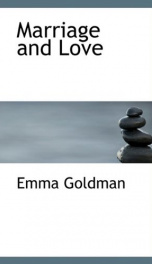
Marriage and Love
Series:
Unknown
Year:
Unknown
Raiting:
3.5/5
Love, the strongest and deepest element in all life, the harbinger of hope, of joy, of ecstasy; love, the defier of all laws, of all conventions; love, the freest, the most powerful molder of human destiny; how can an all-compelling force be synonymous with that poor little State - and Church - begotten weed, marriage? --This text refers to the Pamphlet edition.
Show more
add to favoritesadd In favorites
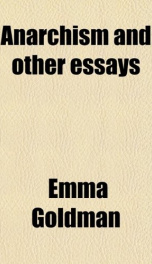
Anarchism and Other Essays
Series:
Unknown
Year:
Unknown
Raiting:
4.5/5
A series of speeches of the radical writer Emma Goldman, one of the towering figures in global radicalism of the late 19th and early 20th centuries. Anarchism and Other Essays covers a wide variety of topics - patriotism, women’s suffrage, marriage, prisons - Goldman draws attention to "the mental and soul struggles of twenty-one years". The book is useful for those, who are eager to discover what this political philosophy stands for and what its issues have been for a long time. An important contribution to society, Emma Goldman's work is as relevant today as it was in the beginning of the 20th century.
Show more
add to favoritesadd In favorites
Book list

Marriage and Love
Series:
Unknown
Year:
Unknown
Raiting:
3.5/5
Love, the strongest and deepest element in all life, the harbinger of hope, of joy, of ecstasy; love, the defier of all laws, of all conventions; love, the freest, the most powerful molder of human destiny; how can an all-compelling force be synonymous with that poor little State - and Church - begotten weed, marriage? --This text refers to the Pamphlet edition.
Show more
add to favoritesadd In favorites

Anarchism and Other Essays
Series:
Unknown
Year:
Unknown
Raiting:
4.5/5
A series of speeches of the radical writer Emma Goldman, one of the towering figures in global radicalism of the late 19th and early 20th centuries. Anarchism and Other Essays covers a wide variety of topics - patriotism, women’s suffrage, marriage, prisons - Goldman draws attention to "the mental and soul struggles of twenty-one years". The book is useful for those, who are eager to discover what this political philosophy stands for and what its issues have been for a long time. An important contribution to society, Emma Goldman's work is as relevant today as it was in the beginning of the 20th century.
Show more
add to favoritesadd In favorites
What readers are saying
What do you think? Write your own comment on this author!
write a commentif you like Goldman Emma try:
readers also enjoyed
What readers are saying
What do you think? Write your own comment on this author!
write a commentGenre
if you like Goldman Emma try:
readers also enjoyed
Do you want to exchange books? It’s EASY!
Get registered and find other users who want to give their favourite books to good hands!
